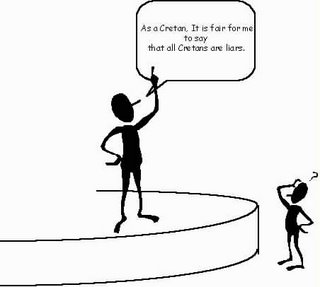
Yesterday, we took note of Seymour Hersh's alarming article in The New Yorker. Much of what he reports is confirmed -- or perhaps we should say repeated -- in today's front page article in WaPo.
The latest article is by-lined Peter Baker, Thomas E. Ricks, and Dafna Linzer. Baker is the Post's White House reporter, former Moscow Bureau Chief, and a veteran war correspondent in Iraq. Ricks is the Post's Chief Military Affairs correspondent. Linzer is identified as a "staff writer" who has covered some U.N. and nuclear proliferation issues, along with less weighty subjects.
Their article makes the same main points as Hersh's longer piece, though with less detail and seemingly sourced to some different military and intelligence sources. It also makes explicit two things Hersh only implies (italics added):
- "A strike at Iran, [military sources] warn, "would at best just delay its nuclear program by a few years but could inflame international opinion against the United States... ;" and
- "'The Pentagon is arguing forcefully against it because it is so constrained' in Iraq and Afghanistan... ."
The near simultaneous appearance of the Hersh and Baker-Ricks-Linzer pieces (along with several others in the past week from London to Los Angeles) suggest three possibilities:
1. The Post suddenly has reformed its ways and it's now asserting independence from the Bush administration part line;
2. The Pentagon's military brass, which both Post and New Yorker articles identify as dissenting to Bush's nuclear attack plans, is putting on a desperate, around-the-world full court press to halt the madness of King George before he launches Armaggedon; or
3. This is all part of a coordinated U.S. bluff to scare the bejesus out of Iran so it accepts a diplomatic solution.
Number 1 is difficult to believe after all these years of seeing the Post on its knees in front of the Bush administration. Number 2 would be easier to believe if it were bylined by Walter Pincus, who is just about the only Post investigative reporter whose skeptical pre-Iraq war coverage -- like that of Seymour Hersh, based on highly placed military and intelligence sources -- proved correct (and whose articles invariably were buried by WaPo editors deep inside the Post where few would see them).
Number 3 offers the best hope for a permanent solution to the Iran dilemma. So, it should be everyone's favorite. But as Joseph Cirincione of the Carnegie Institute wrote last week in an article titled "Fool Me Twice", the trouble with investing in that alternative is that too many in and out of Government (including him) believed the same thing during the run-up to the Iraq war, to their lasting regret.
Meanwhile, administration spokesmen from Bush to Bolton and Condi to Cheney are busy issuing statements that the U.S. wants a diplomatic solution but it refuses to meet with Iran over any issue other than the Iraq insurgency. The U.S., they say, has no intention of using military force -- but we won't rule it out, either.
So both we and Iran are confronted with something very much like the Liar's Paradox: Is it logical to believe the prevaricating Bush administration when it claims it's telling the truth?
(April 10)
Josh Marshall identifies the same paradox in an April 10 item on Talking Points Memo:This post is, hopefully, nothing more than stating the obvious. But let's just put down for the record that when President Bush calls recent reports of White House plans to attack Iran "wild speculation" that means absolutely nothing.As the famous paradox goes, how can you trust a liar when he claims he's telling you the truth?
It's not just that the president has now earned a well-deserved reputation for lying. It is because he and his chief aides lied to the country about a more or less parallel situation -- the build up to war on Iraq -- only four years ago. We now know that the fix was in on the Iraq War as early as September/October 2001. And the president and his crew kept up the charade that no decisions had been made long after those claims became laughable.







No comments:
Post a Comment